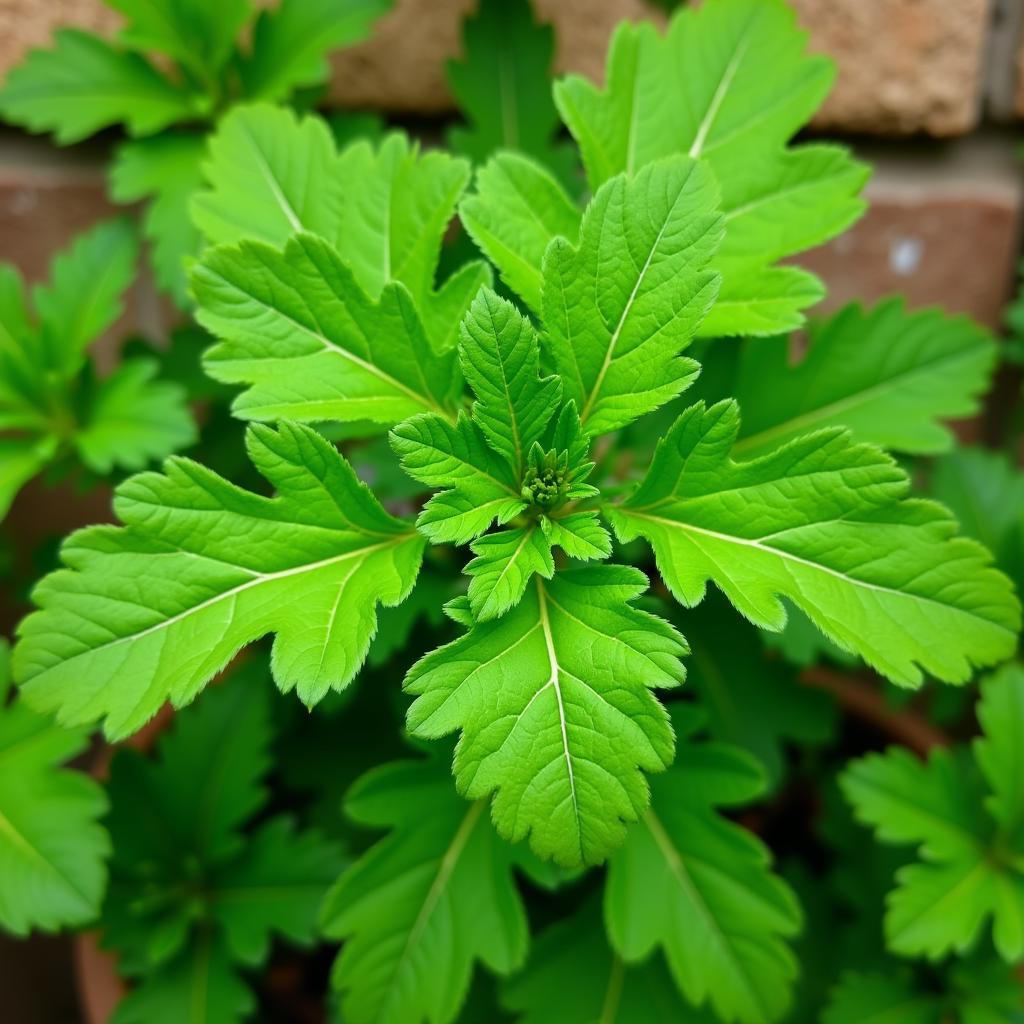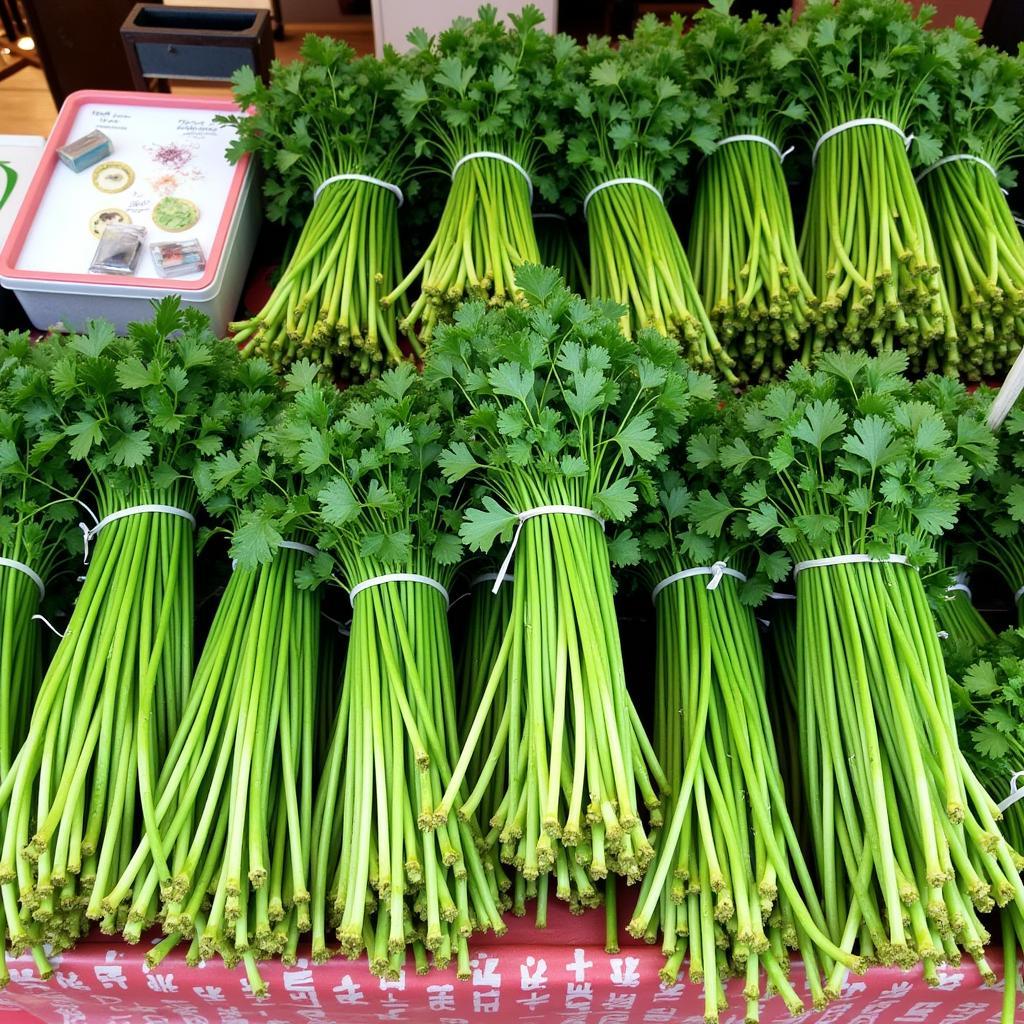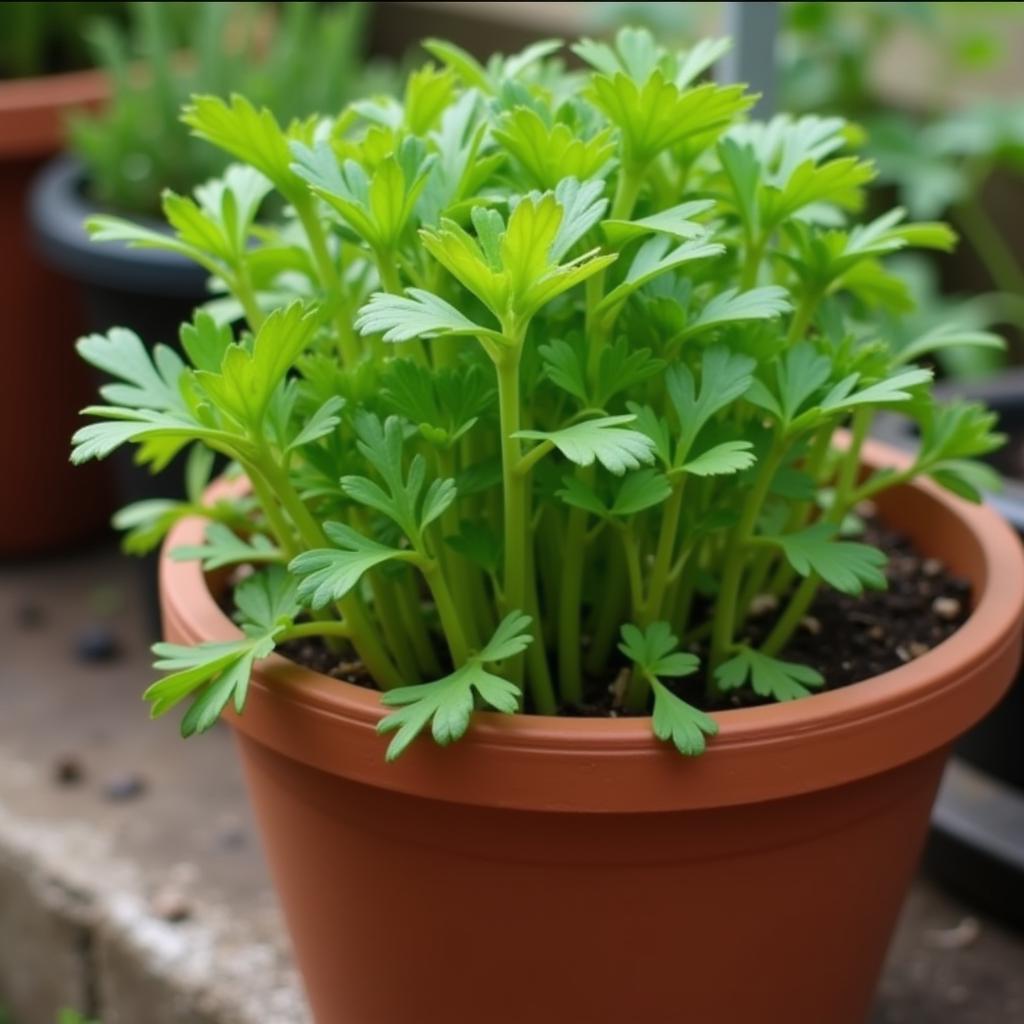Discovering the African Coriander Plant: A Versatile Herb with a Rich History
The African Coriander Plant, known scientifically as Eryngium foetidum, is a pungent herb with a long history of culinary and medicinal use throughout the African continent and its diaspora. Far from just a flavor enhancer, this fascinating plant offers a glimpse into the diverse cultural traditions and botanical treasures of Africa.
 African Coriander Plant Growing in a Garden
African Coriander Plant Growing in a Garden
More Than Just a Garnish: Unpacking the Uses of African Coriander
While often referred to as coriander, Eryngium foetidum is not related to the coriander commonly used in Asian cuisine (Coriandrum sativum). Its distinct flavor profile, a powerful blend of cilantro, parsley, and citrus with a hint of sulfur, has earned it a variety of nicknames, including culantro, recao, and ngai.
This unique taste is highly sought after in many cuisines. In the Caribbean, it’s a staple ingredient in sofrito, a flavorful base for countless dishes. Southeast Asian cooks use it in curries and stir-fries, while in some parts of Africa, it’s used to flavor stews and sauces, adding depth and complexity to traditional recipes. african delicacies are often elevated by the distinct flavor profile of this versatile herb.
 Fresh African Coriander at a Local Market
Fresh African Coriander at a Local Market
Beyond its culinary applications, African coriander holds medicinal significance in various cultures. Traditionally, it’s been used to alleviate digestive issues, reduce fevers, and even address respiratory problems. While scientific research on its medicinal properties is ongoing, its long history of use in traditional medicine highlights its potential health benefits.
Cultivating Your Own African Coriander: Tips for a Bountiful Harvest
One of the remarkable attributes of African coriander is its ease of cultivation. Whether you have a spacious garden or a sunny windowsill, you can easily grow this herb at home.
Here’s a simple guide:
- Start with seeds or seedlings: African coriander seeds are readily available online or at specialty nurseries. You can also find seedlings at some garden centers.
- Choose a sunny location: This herb thrives in warm climates and needs at least six hours of sunlight daily.
- Provide well-drained soil: African coriander prefers fertile, well-drained soil with a slightly acidic pH.
- Water regularly: Keep the soil consistently moist, especially during dry spells. However, avoid overwatering, as it can lead to root rot.
- Harvest regularly: Harvest the leaves regularly by snipping them off at the base of the plant. Regular harvesting encourages bushier growth and a continuous supply of fresh leaves.
 African Coriander Thriving in a Pot
African Coriander Thriving in a Pot
Exploring the Cultural Significance: African Coriander in Tradition and Cuisine
The African coriander plant is more than just an ingredient; it represents a thread woven through the tapestry of African culture. Its presence in traditional medicine highlights a deep-rooted connection to the land and its healing properties.
“In many African communities,” explains Dr. Abena Nkrumah, an ethnobotanist specializing in West African flora, “African coriander is much more than just a herb. It’s a symbol of good health, used in rituals, and shared as a gesture of hospitality.”
Its distinct flavor also plays a vital role in shaping the culinary identity of many African nations. From traditional South African meals to fragrant West African stews, the pungent aroma of African coriander signifies comfort food, family gatherings, and a celebration of cultural heritage. African bites recipes often utilize its unique flavor profile to create memorable and delicious dishes.
A Taste of Africa in Your Kitchen: Embracing the Versatility of African Coriander
Whether you’re a seasoned chef or a home cook looking for new flavors, the African coriander plant is an invitation to explore the diverse culinary traditions of Africa. Its versatility allows for endless culinary creations, from fragrant curries to flavorful marinades and refreshing salads.
More than just an ingredient, the African coriander plant embodies the spirit of cultural exchange and botanical exploration. Its journey from the African continent to kitchens worldwide speaks volumes about its unique flavor, resilience, and enduring appeal.


